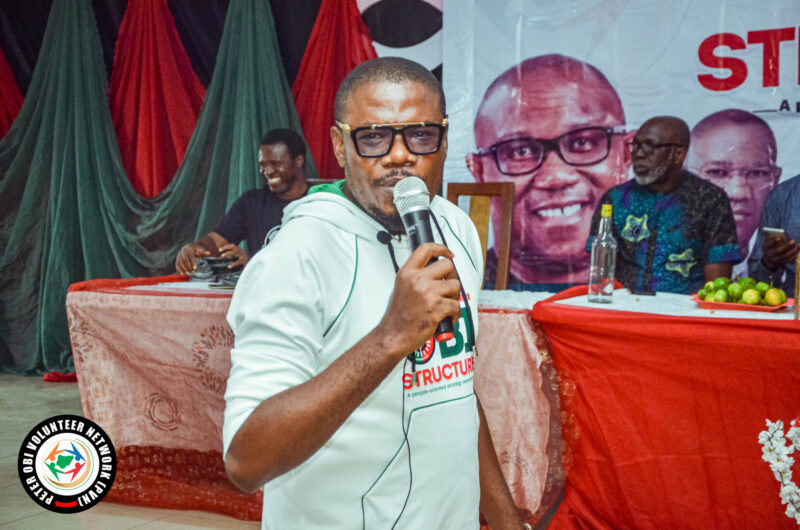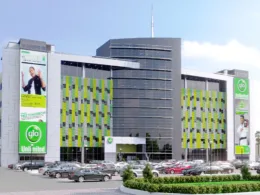Nigeria, the most populous country on the African continent and a once-promising beacon of hope in the region, now teeters on the brink of collapse. The malaise affecting this vibrant nation isn’t due to a lack of resources or potential but rather a crisis of governance. As corruption, mismanagement, and systemic inefficiencies continue to plague the country, it becomes increasingly clear that Nigeria’s survival hinges on an urgent and uncompromising call for reform. The people, tired of the increasing hardship and the terrible inflation, are reacting with protests tagged #EndBadGovernanceInNigeria.
Nigeria’s Dilemma: The Cost of Corruption and Mismanagement
Nigeria’s troubles are not merely as a result of the offset of global economic downturns or external pressures. At the heart of its woes is a deep-seated corruption, what I often term “endemic corruption” that has seen the nation’s resources siphoned off into personal purses and stifled national progress. The oil wealth that should have been a blessing has instead become a curse, with billions of dollars disappearing into the pockets of corrupt officials. This mismanagement has crippled the infrastructure, crippled the health sector, left the education system in disrepair and is now biting hard on food prices, leaving the bulk of the people in starvation.
Public services have deteriorated dramatically. Roads are in disrepair, electricity supply is erratic yet quite expensive, and basic healthcare is often out of reach for many Nigerians, irrespective of class. The ripple effect of these failures is felt in every facet of society, from the rising unemployment rates to the ever-expanding gaps between the rich and the poor. The stark reality is that Nigeria’s governance issues are not just a political problem; they are an existential threat.
The Security Crisis
The security situation in Nigeria has reached alarming levels. Armed insurgencies, banditry, and ethnic violence have become commonplace. The government’s inability to provide safety and security has created an environment where lawlessness thrives. Citizens are left to fend for themselves, and the state’s inability to protect its people only exacerbates the crisis.
The Boko Haram insurgency in the northeast, the Fulani herdsmen clashes in the middle belt, and the various armed groups in the Niger Delta are just symptoms of a larger governance failure. Not forgetting the Unknown Gunmen siege of the South Eastern part of the nation, where criminals taking cover under the cloak of self-determination agents often sack police stations and military units. When the state loses control over its territory, it not only jeopardizes immediate security but also undermines the very foundation of the nation.
Economic Despair
Nigeria’s economic landscape is equally grim. The economy, once buoyed by oil revenues, now struggles under the weight of poor governance and economic mismanagement. Inflation rates soar, and the naira has depreciated significantly. The business climate is hostile to both local entrepreneurs and foreign investors due to unpredictable policies, the baseless value of the naira against the dollar and rampant corruption.
Unemployment rates continue to climb, particularly among the youth, leading to increased social unrest. Without a significant overhaul in governance, the economic prospects for Nigeria look bleak. The potential for economic growth is stifled by a lack of infrastructure, corruption, and an inefficient bureaucracy that discourages investment and innovation.
A Government of Elitocracy
The troubles of Nigeria got multiplied in days following the inauguration of the administration of the current president, Ahmed Bola Tinubu in May, 2023. Largely accused of forcing his way to power, his policies have been squarely elitist without recourse to the majority of the poor citizens in the nation.
He announced his entrance in 2023, by removing fuel subsidy, thereby causing a tripled hike in the cost of petroleum products, in his first day in office without providing cushioning steps for the suffering masses. This unplanned policy and the inability to stabilize the naira rates against the US dollar, transcended into a sudden rise in food prices across the nation.
With a minimum wage of barely N30,000 (less than 20 US dollars) per month, which was recently increased to N70,000 per month, after a long struggle with the organized Labour Unions, Nigerians are expected to curb with, for example, the price of rice which went from N38,000 per bag to N85,000 per bag within the first three months of Tinubu’s regime. This inflation affects every aspect of life in Nigeria. Hence, the raging anger of the people, who have been civil enough to express it in the form of a peaceful nationwide protest.
The Path Forward: A Peaceful Call for Reform
To steer Nigeria away from the brink of extinction, a comprehensive approach to governance reform is essential. This reform must be holistic, targeting the root causes of corruption, inefficiency, and violence. It should include the following critical steps:
1. Anti-Corruption Measures: Enforcing stringent anti-corruption laws and ensuring accountability for those in power is crucial. Transparency in public spending and the prosecution of corrupt officials are non-negotiable steps toward rebuilding trust in governance.
2. Institutional Reforms: Strengthening institutions to function independently and effectively can help curb mismanagement and enhance service delivery. This includes reforming the judiciary, police, and other critical sectors to operate with integrity and efficiency.
3. Security Overhaul: A renewed focus on security sector reform is needed to address the root causes of violence and insurgency. Investing in intelligence, improving community policing, and fostering dialogue between conflicting groups can help restore peace.
4. Economic Diversification: Reducing dependency on oil by diversifying the economy is essential for long-term stability. Promoting agriculture, technology, and manufacturing sectors can create jobs and build a more resilient economic framework.
5. Public Engagement: Encouraging civic participation and engaging the populace in decision-making processes can lead to more accountable and responsive governance. Civil society organizations and media must play an active role in holding leaders accountable.
Conclusion
Nigeria stands at a crossroads. The path it takes now will determine whether it can overcome its governance crisis or succumb to further decay. The call to #EndBadGovernanceinNigeria that is kick started by the ongoing nationwide protests is not just a slogan but a necessary demand for change. As citizens, leaders, and stakeholders come together to confront these challenges, Nigeria’s future can shift from one of impending extinction to one of renewal and prosperity. The time for reform is now, and the stakes have never been higher.
Philip I. Thomas aka Comrade Phils is a social activist in Nigeria.









1